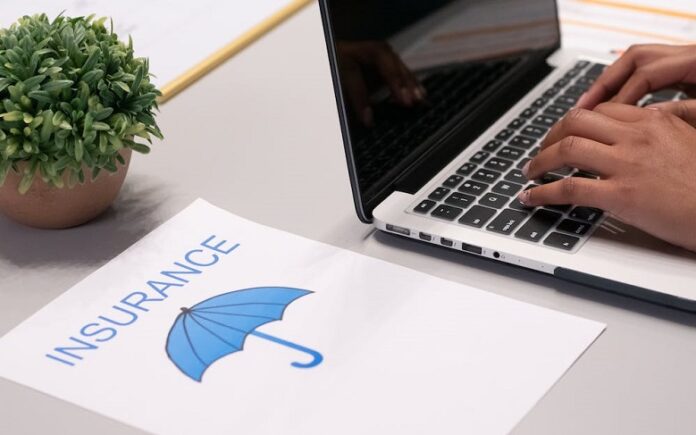In the unpredictable landscape of business, unforeseen events can derail even the most robust operations.
From fires and theft to costly lawsuits, businesses face a myriad of risks daily.
Commercial insurance serves as a financial safety net, ensuring that when calamity strikes, companies have the means to rebound and thrive.
This protective shield encompasses a variety of coverage types, including property, liability, and workers’ compensation, each designed to address specific challenges.
With such safeguards, businesses can recover from physical damages, legal claims, and even revenue losses during interruptions.
As we delve deeper, we’ll uncover how investing in commercial insurance not only secures a business’s assets but also its reputation, fostering longevity and trust in a volatile market.
The choice is clear: equip your business for survival.
What is Commercial Insurance?
Table of Contents
Commercial insurance is a broad term encompassing a variety of policies designed to protect businesses from financial losses.
These losses could stem from events like property damage, liability issues, employee-related risks, and many more.
Types of Commercial Insurance
Property Insurance: Protects business properties and assets (like buildings and equipment) against damages from events like fires, storms, and theft.
Liability Insurance: Covers businesses against claims resulting from injuries or damages to other people or property. Examples include customer injuries at a business premise or damages caused by a company’s products.
Workers’ Compensation: A mandate in many places, this insurance provides benefits to employees who get injured or sick from work-related activities. It covers medical bills and wage replacement, offering protection against potential lawsuits from affected employees.
Business Interruption Insurance: This ensures that a business can continue operations or recover lost income during periods when they cannot operate normally due to certain covered events, like natural disasters.
Specialized Coverage’s: These are tailored for specific risks, including:
- Errors & Omissions: Protects against mistakes or negligence that leads to client financial loss.
- Cyber Liability: Offers protection against digital threats, like data breaches or cyber-attacks.
Pooling of Risks
At its core, certainly, insurance operates on the principle of risk pooling. Businesses pay premiums to an insurance company, which in return promises to cover specified financial losses. By collecting premiums from many, insurers can pay out claims, spreading the risk among a larger group and offering businesses peace of mind.
The Financial Impact of Unforeseen Business Disasters
In the tumultuous world of business, unforeseen disasters can strike without warning, often with crippling financial consequences.
Historical data paints a sombre picture: countless businesses, both fledgling and established, have succumbed to financial strain caused by unexpected events.
From natural calamities that damage infrastructure to severe market downturns affecting cash flow, the threats are multifaceted.
Additionally, the legal realm presents its own set of challenges. Legal claims and lawsuits can quickly escalate, with the potential to drain a company’s resources, both in terms of finances and reputation.
Even a single substantial claim, without proper financial protection in place, can push a business to the brink of bankruptcy.
Hence, understanding these potential hazards underscores the indispensable role of commercial insurance in safeguarding a business’s financial health and ensuring its continued operation in the face of adversity.
How Commercial Insurance Comes to the Rescue
The business world is fraught with challenges, and while entrepreneurs are adept at navigating market shifts and competitor tactics, some external threats can’t be predicted or controlled.
Enter commercial insurance, the unsung hero of many corporate sagas.
Rebuilding after Physical Damages
Whether it’s a fire that razes your storefront, a flood that engulfs your inventory, or a theft that deprives you of valuable assets, the aftermath can be financially draining.
Commercial insurance steps in here, compensating for these losses. With adequate property insurance, businesses can undertake repairs, replace lost items, and bounce back without depleting their reserves.
Protection Against Lawsuits
We live in a litigious society. From a slip and fall at your premises to a disgruntled client claiming damage due to your product or service, lawsuits can come from any corner.
Liability insurance is a shield against such claims, covering legal fees, settlements, and any awarded damages. This ensures that a single lawsuit doesn’t spell the end for your business.
Keeping Business Running During Interruptions
Some disasters may not damage your property but can halt your operations.
Imagine a key supplier facing an issue or a prolonged power outage in your area.
Business interruption insurance can cover the lost revenue, ensuring you maintain cash flow until normal operations resume.
It’s like a safety net, ensuring that even if business pauses, your financial obligations don’t.
Securing Employees’ Future
Employees are the backbone of any enterprise. Should they suffer an injury or illness due to their job, workers’ compensation insurance steps in. This not only covers their medical bills but also compensates for lost wages.
Beyond the financial aspect, it fosters a sense of security among employees, knowing that their welfare is a priority.
In essence, commercial insurance is akin to a dependable partner, standing by businesses during their most challenging times.
It provides the financial support and peace of mind needed to overcome adversities and continue the journey towards growth and success.
Evaluating the Right Insurance for Your Business
Choosing the optimal insurance for your venture is crucial. It’s not merely about purchasing a policy; it’s about aligning protection with potential risks. Here’s a roadmap to guide you:
- Start with a comprehensive risk assessment tailored to your industry and operations.
- Engage with seasoned insurance agents or brokers for guidance and expertise.
- Prioritize policies that can be customized to your business’s specific needs.
- Ensure regular policy reviews to align with evolving business demands and challenges.
- Explore Business Owner’s Policies (BOP) for bundled, cost-effective coverage options.
- Gather and compare quotes from multiple providers to find the best fit in terms of coverage and cost.
- Thoroughly read and understand policy exclusions, limitations, and conditions to avoid future surprises.
- Seek recommendations and insights from fellow businesses on their insurance choices and experiences.
By following these steps, businesses can secure robust commercial insurance coverage that aligns with their unique risks and requirements, ensuring resilience in the face of unexpected adversities.
Addressing Common Myths and Misconceptions
Misunderstandings surrounding commercial insurance often deter businesses from optimal coverage.
Many fall prey to the “it won’t happen to me” mind set, underestimating potential risks.
Others are daunted by the perceived high costs, failing to recognize the greater expense of uninsured losses.
Small businesses frequently believe they’re too insignificant for comprehensive coverage, overlooking the fact that they may be most vulnerable.
Dispelling these myths is crucial. By understanding the true value and necessity of commercial insurance, businesses can make informed decisions, ensuring they’re adequately protected against both common and unforeseen challenges that might jeopardize their longevity.
The Real Cost of Skipping Commercial Insurance
Opting out of commercial insurance can be a perilous gamble.
While upfront premiums might seem burdensome, the potential out-of-pocket costs of disasters, lawsuits, or business disruptions can be staggering in comparison.
Beyond immediate financial implications, businesses risk damaging their reputation and losing the trust of clients and stakeholders.
The long-term repercussions can be even more severe, with some companies never recovering from the blow of a single uninsured event.
In the grand scheme, the cost of commercial insurance pales against the devastating financial and reputational consequences of being unprotected.
Investing in coverage isn’t just prudent—it’s essential for sustainability.
Conclusion
In the dynamic world of business, challenges are inevitable but being caught unprepared isn’t.
Commercial insurance stands as a beacon of protection, shielding enterprises from unforeseen adversities that could threaten their very existence.
While the initial investment might seem substantial, the protection, peace of mind, and financial stability it offers are priceless.
Businesses that prioritize this safeguard not only fortify their financial health but also showcase responsibility and foresight.
In a landscape filled with uncertainties, equipping one’s business with robust commercial insurance is a testament to resilience, prudence, and a deep-rooted commitment to long-term success.











